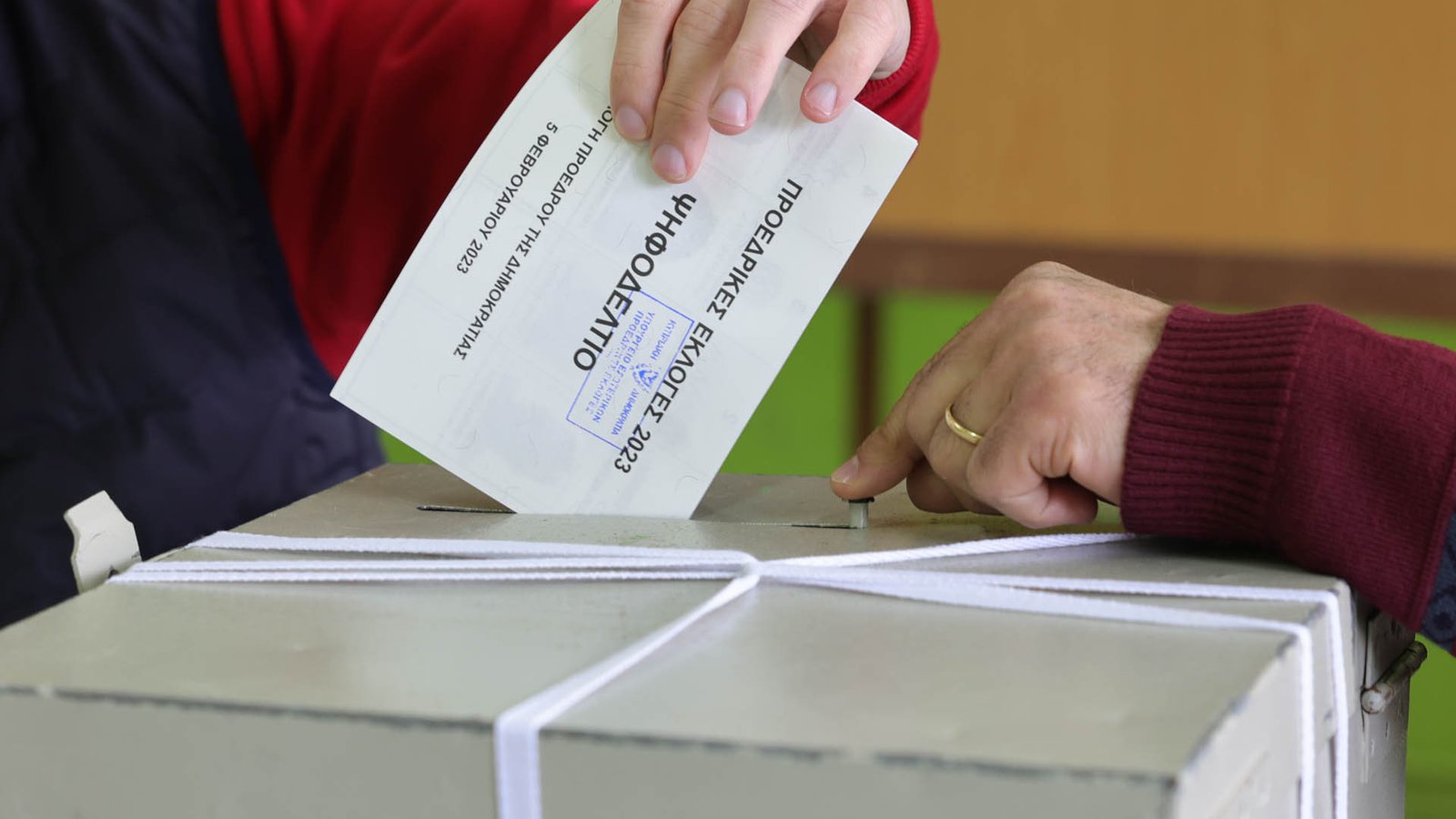Cypriots are pessimistic about the future, stalemate in solution talks, the economy and geopolitical crises, while they maintain their trust in European institutions and the single currency, according to an elections survey commissioned by state broadcaster CyBC.
However, it found that the two traditional political parties, DISY and AKEL, will dominate the results of the June 9 multi-ballot elections for members of the European Parliament, mayors and councillors, and rural authorities.
The opinion poll placed DISY in the lead for the election of the six MEPs with 20%, followed by AKEL (19%), ultra-nationalist ELAM (10.5%), centrist DIKO (8.5%), socialist EDEK (2.5%), Greens (2.5%), newcomers Volt (2.5%) and the Animal Party 92%).
The threshold to secure a seat is 16%, with the runners up waiting for the re-weighting of the votes. DISY had two members of the outgoing European Parliament, AKEL had two, Diko had one and Edek one.
The CMRC-Cypronetwork survey of 1,227 people between April 10 and 22, found two thirds of those polled, or 64%, said that Cyprus is in the wrong direction as regards its future, higher than the 55% whop were disappointed in the poll prior to the 2023 presidential elections and the 58% in the 2019 parliamentary vote.
Those who said Cyprus was in the right direction dropped to 9% from 17% and 16%, respectively, with an unchanged 24-26% undecided.
The main issues of concern according to 26% of respondents are the migration problem, compared to just 8% in the October 2022 CyBC opinion poll, corruption at 23% (2022: 18%), rising cost of living 17% (26%), economy 11% (15%), the national problem and Turkey at 6% (8%). Two years ago, the Covid pandemic was the sixth most important issue according to 3% of respondents.
As regards the Israel-Hamas war in Gaza, two third or 66% say Cyprus should remain neutral, with 17% saying it should side with the Israelis and 8% with the Palestinians. However, 32% said Israel’s actions are seen as genocide, 20% said it was justified, 18% responded “both” and 16% said “neither”.
Similar to the impact of the war in Ukraine in the 2022 survey, 77% said it will be negative for the Cyprus economy.
Moving to the local administration issues, that prompted the upcoming vote and the election of fewer mayors as a result of redistricting and mergers, 65% of those polled said they were “little” or “not at all” informed about the municipal reforms, while only 28% said they were aware.
Similarly, 32% said the reforms were wrong, 24% said they were right, 20% said both and 24% undecided.
Quality of life
The best quality of life is in Limassol (26%), followed by Nicosia (17%), Larnaca (10%) and Paphos (9%). Strovolos, that has the worst road network and non-existent repairs, polled 4%.
As regards the prospects of a solution to the Cyprus problem, 92% were pessimistic, unchanged from the October 2022 survey, while only 6% said they were optimistic (2022: 5%).
However, views on a solution model have varied, with an increased 33% calling for a return to a unitary state (November 2022: 14%), 28% saying it should be bizonal bicommunal federation (36%), 10% want two independent states (18%) and 9% saying the status quo should remain (13%). Talk of a confederation has subsided with just 2% believing in it, compared to 6% in 2022, while 3% want the situation overturned by force (2%).
On the other hand, the public’s view of Turkish Cypriots has improved mildly, with 22% saying it is better, compared to May 2019 (20%), 66% say it has not changed (59%) and 9% that it is worse (18%).
Even the Turkish Cypriot hardline pro-Ankara leader Ersin Tatar’s popularity has improved, with 78% saying it is negative, compared to 88% in January 2023.
From a 2017 poll, 71% said Cyprus-Greece relations have improved (68%), while compared to a 2021 survey, Greece’s role in the Cyprus peace talks has diminished to 55% (from 61%).
The EU’s role is seen at 35% (40%), France at 32% (59%), the UN at 23% (29%), the U.S. is at 13% (29%), Russia at 12% (25%) and Britain unchanged at 8%.
As regards trust, support for elected mayors and municipalities has dropped to 37%, from 62% in 2021, 30% for trade unions (36%), parliament has gained and risen to 24% from 20%, the government has dropped to 23% (25%) and the political parties fared mildly better at 15% (13%).
Among the institutions, only the Church of Cyprus had improved to 46% (from 43% in 2021), while all others have lost ground: the National Guard at 57% (67%), police 44% (55%), justice at 31% (42%), and the civil service at 27% vs 39% in 2021.
On European issues, 65% said Cyprus benefited from EU accession, compared to 58% in May 2019, while 39% said we benefited from the introduction of the Euro, up from 33% in 2019. Also, 41% said Cyprus did not benefit from the Euro, lower than the 50% in 2019.
Trust in the European Parliament and the European Commission has waned in the past five years. Compared to the 2019 poll, 31% said they trust the EP (2019: 35%), and 29% support the EC (35%).
Better than the recent Eurobarometer, 82% of those questioned said they will vote in the upcoming elections, compared to 88% in January 2023 (presidential elections), 83% in May 2021 (parliamentary) and 63% in April 2019 (EP vote).
The European Parliament’s Spring 2024 Eurobarometer revealed a strong 71% of European voters likely to go the polls, far above the 60% in Cyprus.
Among the elected, 36% said MEPs were most important, 19% for mayors, 3% said village councils, and only 1% considered deputy mayors or municipal councillors.










